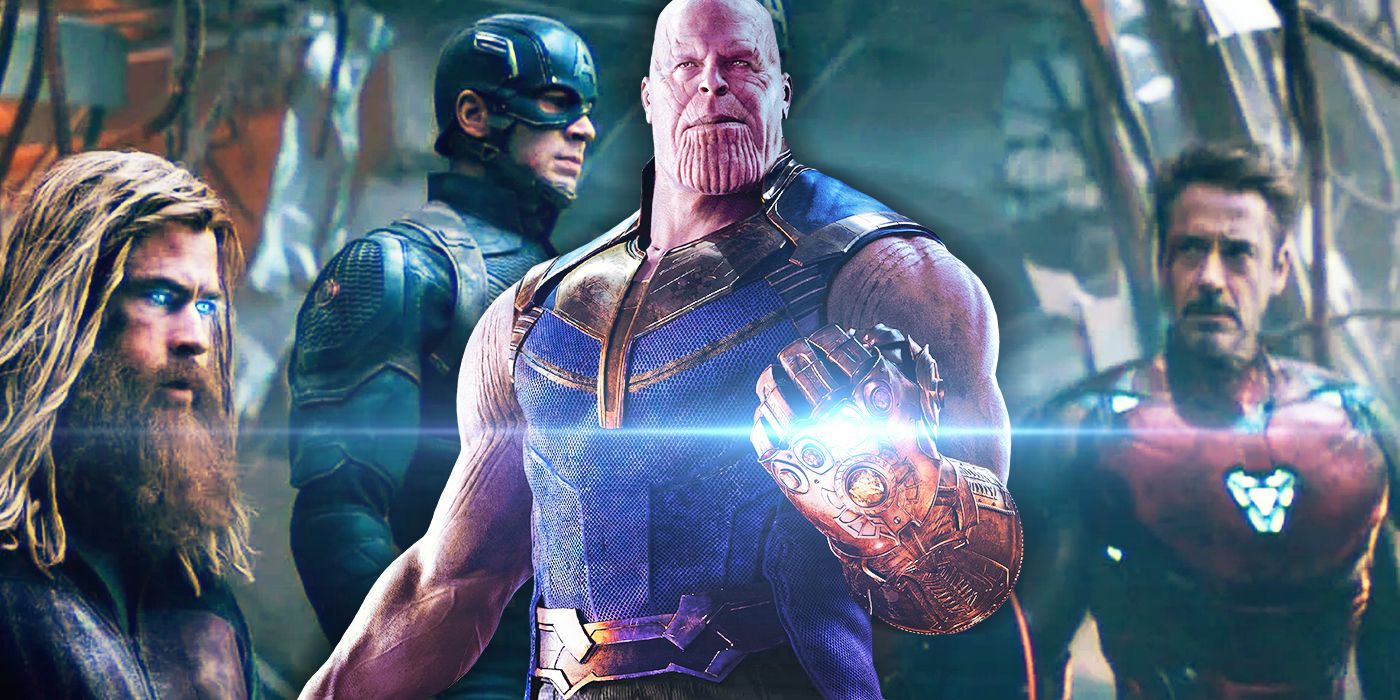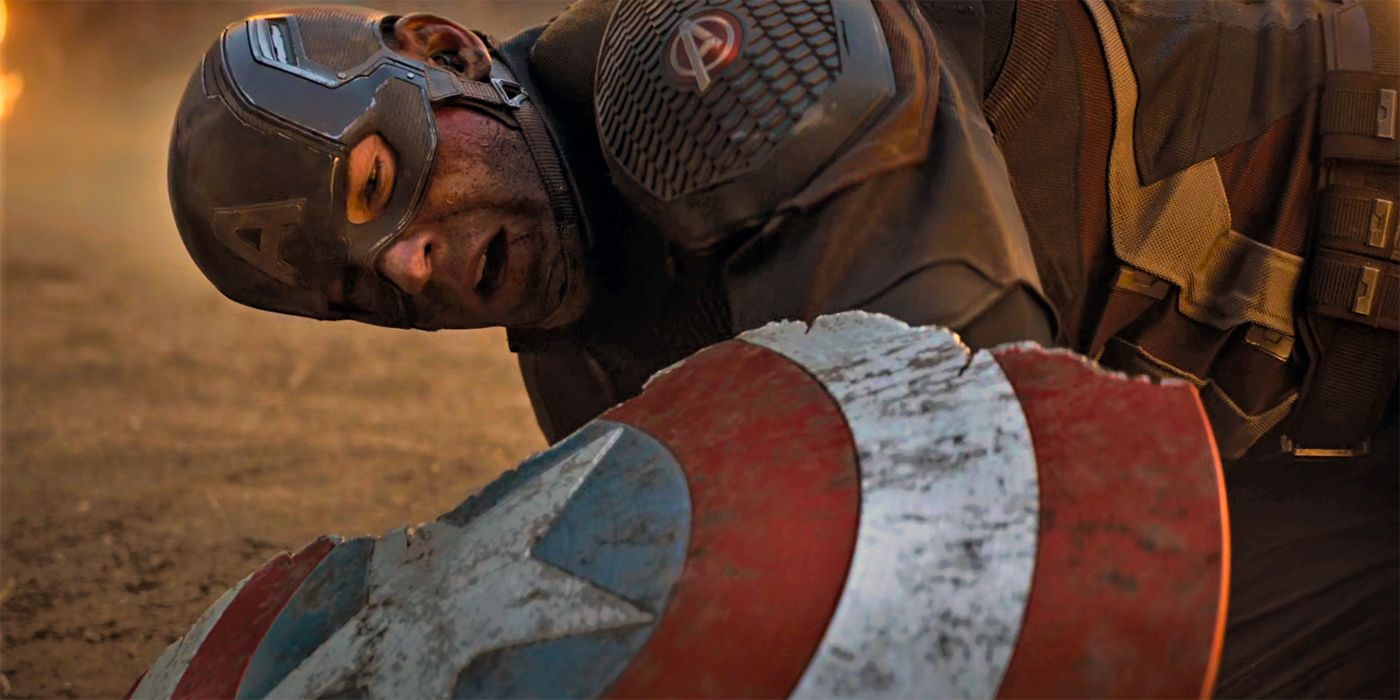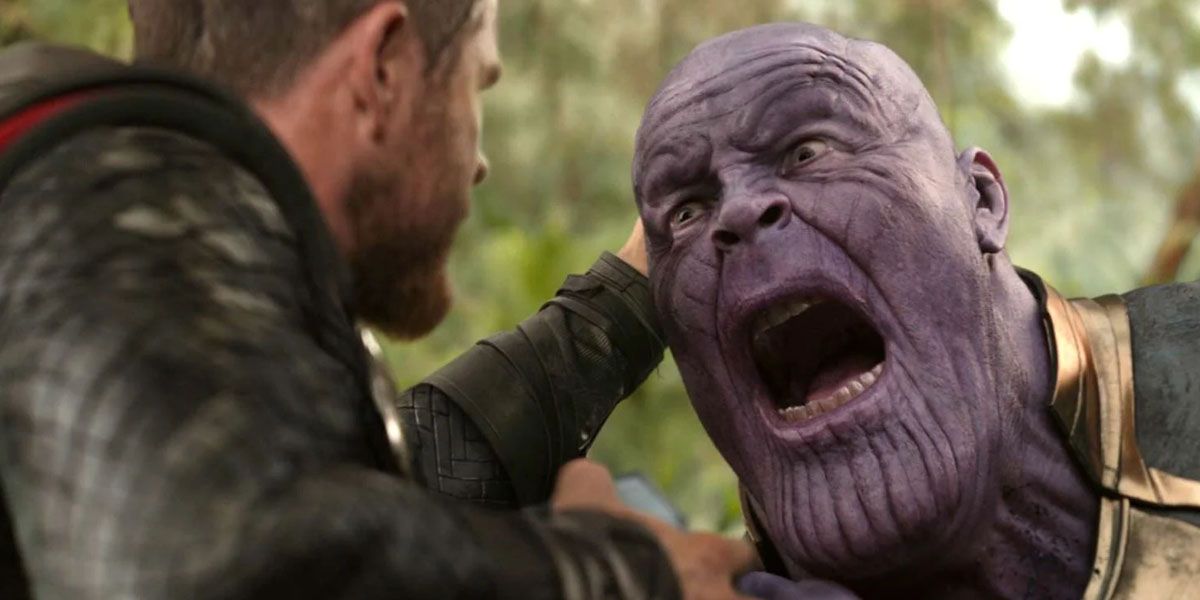The time between Avengers: Infinity War and Avengers: Endgame is surprisingly complex for a pair of movies that are essentially two halves of the same story. The dramatic necessity of letting the Snap stand for five years, coupled with the subsequent “time heist” through the history of the Marvel Cinematic Universe, resulted in some fascinating residual effects. Among them was a variant Thanos from 2014, who arrives in 2023 to claim the Infinity Stones gathered by the Avengers.
It takes a bit to sort out the twists, but it also led to a sharp-eyed fan on Quora noticing something about Endgame’s Thanos: He’s tougher than the version from Infinity War -- demonstrably so. Far from being a continuity error, it paints the character in a more detailed light, accentuating both his madness and his absolute commitment to reaching his goal.
Despite a united attack by Thor, Iron Man and Captain America, Thanos was able to incapacitate the Avengers' "Big Three" following an extended fight at the beginning of Endgame’s final battle. That came despite the heroes putting up far more of a fight against the Mad Titan than in Infinity War. Tony Stark and his allies on Titan came close to removing the Infinity Gauntlet from Thanos hand, while Thor was one slight miscalculation from beheading Thanos during the Battle of Wakanda, and preventing the Snap from occurring. Even Captain America – the least powerful of the Big Three -- fought off Thanos in Infinity War, despite not having his shield (or, for that matter, Mjolnir, which became central to his Endgame battle plan).
However, the discrepancy goes beyond Iron Man, Captain America and Thor to some of the true powerhouses of the MCU. Scarlet Witch, for instance, seems far more of a match for Thanos' forces in Infinity War than in Endgame, despite that Wanda – herself a victim of the Snap – experienced both battles with no appreciable pause. Captain Marvel, too, seemed harder-pressed to handle Thanos in the final battle of Endgame than she did in the film’s opening scene, in which she takes him down with seemingly little effort. Clearly, the 2014 version of Thanos is far more of a threat to the heroes than his older counterpart.
The Quora post stipulated the reasons why, at least from the heroes’ perspective: After the Snap, the Avengers were separated, each of them grappling with the fallout from Thanos’s victory in their own way. Steve Rogers still walked the hero’s path and worked with the remnants of the Avengers to keep people safe. But Tony retired to raise a family; his combat instincts were dulled, and, despite the advanced armor he used in Endgame, he was comparative rusty. Thor, of course, fell apart after the Snap, and, while he was still worthy to wield Mjolnir, he had spent the previous five years drinking on the couch. Finally, all of the Avengers were forced to face the Mad Titan after their headquarters had collapsed on them, leaving them disoriented and possibly injured during the final fight.
But the differences extend to Thanos as well. He began Infinity War with two of the Infinity Stones already in his possession, with the remainder falling very quickly into his hands. Once he sacrificed Gamora for the Soul Stone – possibly the most difficult challenge he faced – Thanos may have felt that victory was all but assured, leading him to become complacent and, perhaps, overconfident as he approached his goal. After the Snap, he had no reason to fight back; the heroes faced him at the beginning of Endgame just after he destroyed the Stones, leaving him injured and weakened when Captain Marvel first faced him. The 2014 Thanos from Endgame was simply hungrier, and, after realizing that all six Infinity Stones were his for the taking, he likely fought that much harder.
As a result, he appears to be significantly stronger in Endgame than he was in Infinity War. It helped make the finale of the Infinity Saga so memorable – forcing the heroes to their limits yet again before snatching victory away at the last minute. But it also demonstrated how well the MCU developed its characters. Not only does the discrepancy make for a better finale, but it’s perfectly in keeping with where both Thanos and his opponents were in their respective stories.



